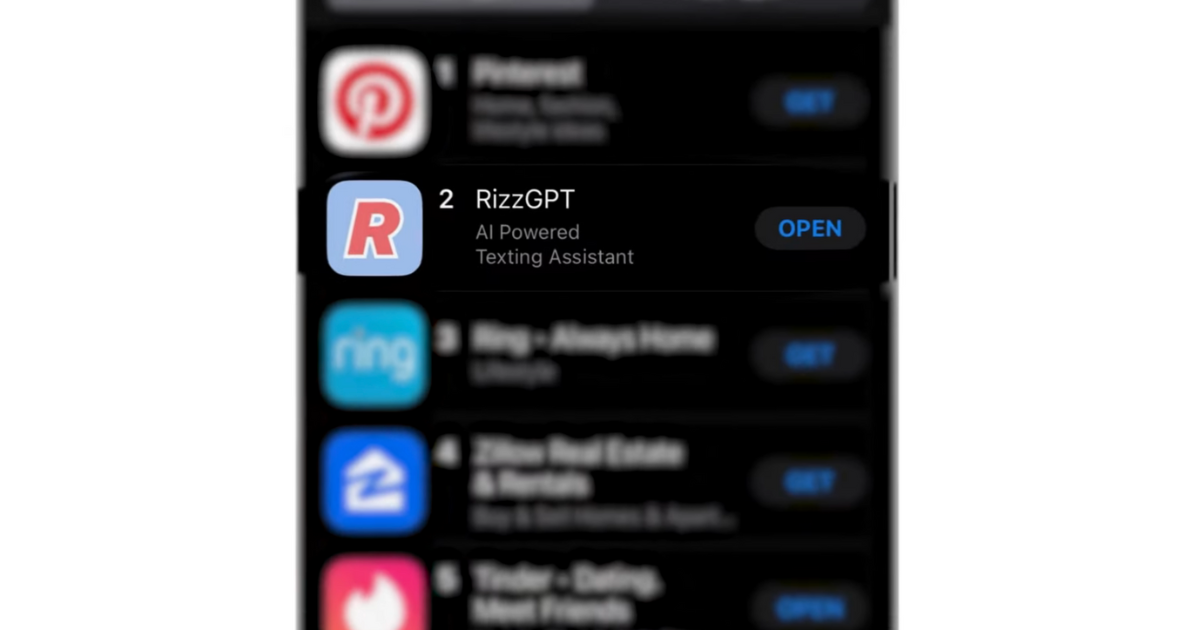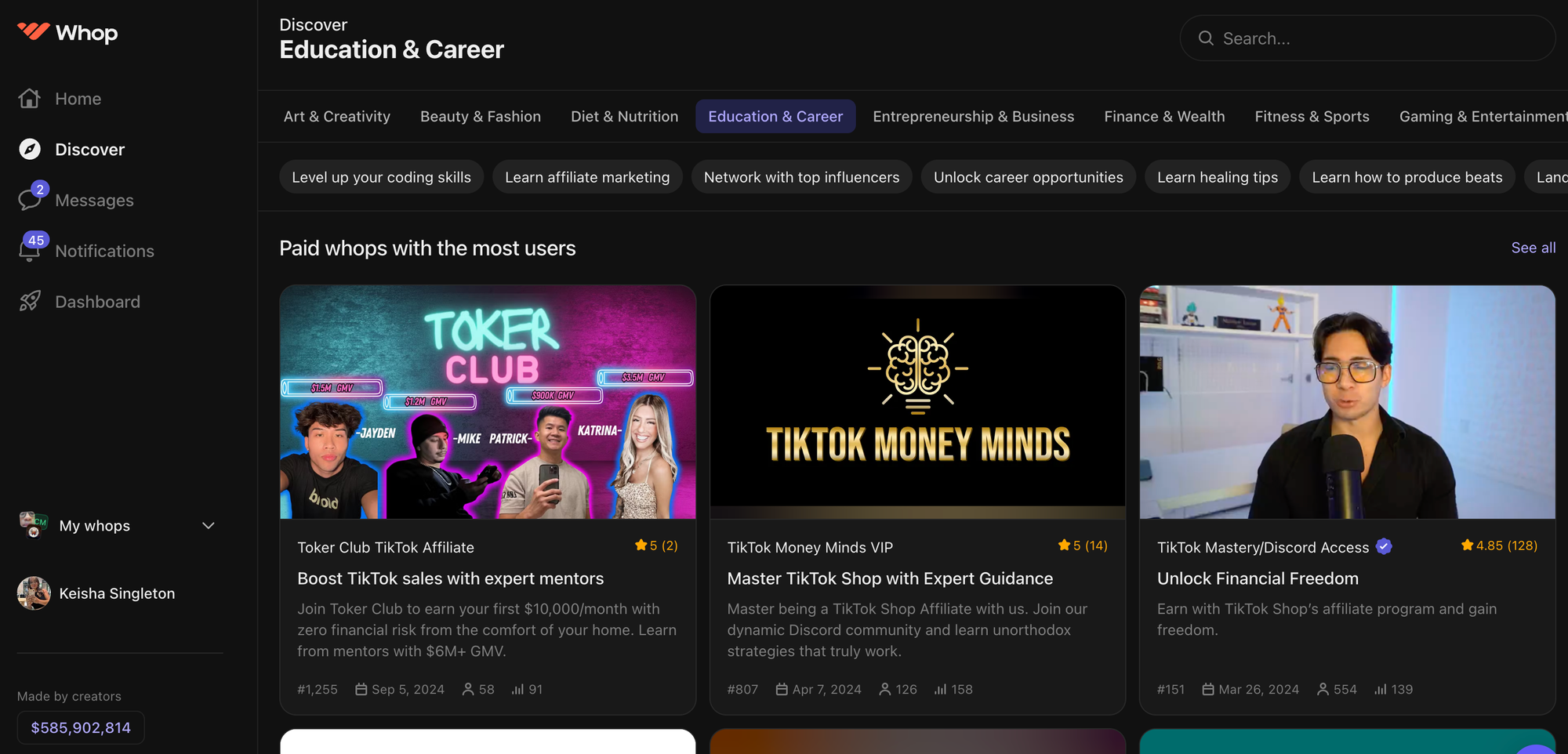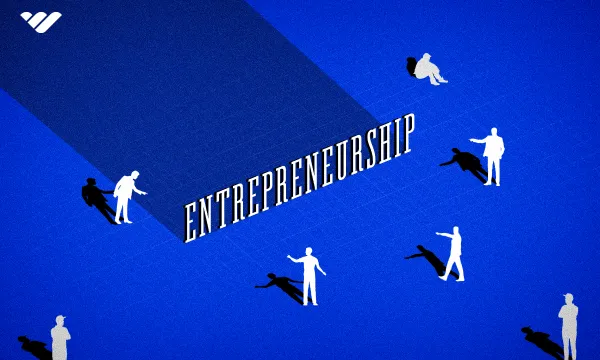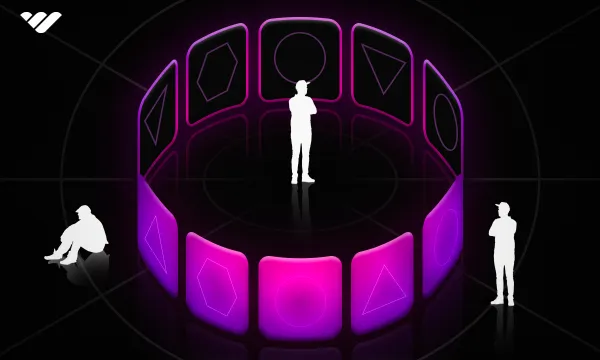Dreaming of making money on your own terms, with the freedom to work from anywhere in the world? Sounds like you have the spirit of an entrepreneur – or, more specifically, a digital entrepreneur.
So, what exactly is a digital entrepreneur? How does it differ from traditional entrepreneurship, and why choose to work online?
Read on to find out.
What is an entrepreneur?
The Oxford definition of an entrepreneur is pretty simple:
Entrepreneur, (noun): a person who sets up a business or businesses, taking on financial risks in the hope of profit.
The term was coined by Irishman Richard Cantillon who first used the term in his essay on the Nature of Commerce in 1755.
It started catching on when French liberal economist, Jean-Baptiste Say, used the term extensively to describe individuals who founded businesses.
But as we know, definitions change with time, culture, and society. If you look up entrepreneur today on Urban Dictionary, you’ll find definitions such as:
‘An entrepreneur is someone restless until his or her vision, plans, and ideas are monetized.’
I like it.
So, is an entrepreneur simply a business owner?
Yes and no.
One could say the differentiating factor between the two is that entrepreneurs are often classified by their drive and hunger for not only financial success but also notoriety and impact.
It’s what sets apart your local mechanic from somebody like Richard Branson. And don’t get me wrong, both are valuable in their own right. The world needs mechanics – but it also needs entrepreneurs.
If you’ve read our blog before, you know we focus our content on making money online. Why? Because that’s the way the world is heading.
Shopping becomes ecommerce, meetings become Zoom calls, and books become ebooks.
So, entrepreneurship?
Yeah, it’s gone digital too.
Digital vs traditional entrepreneurship
While it seems self-explanatory, a digital entrepreneur is simply somebody who runs their business ventures online.
There are many reasons why somebody would choose to go digital – but usually, it comes down to being able to reach a greater network of potential customers and clients.
That and the fact that when you work online, you’re fully remote – you can choose when, where, and how you manage your time, resources, and finances.
When you think about it, most entrepreneurs are operating in the digital space today. Virtual assistants, coaches, sales reps, podcasters, resellers, the list goes on.
So the difference isn’t huge, but the key defining factor is that while a traditional entrepreneur operates in the physical, a digital entrepreneur runs the entirety of their business online.
Why do people become digital entrepreneurs?
Now that we understand the difference between digital and traditional entrepreneurship, the next question is: why do people choose to become digital entrepreneurs?
Truth is, it’s going to vary from person to person – while for one entrepreneur the driving force may be building wealth, for another, it could be as simple as being able to work while having the flexibility to travel.
However, based on research from entrepreneurs running communities here on Whop, we can tell you these are the top reasons Gen-Z (and beyond) are turning to the internet to make money:
Flexibility and freedom
One of the most exciting things about digital entrepreneurship is the sheer flexibility and freedom it offers. Unlike the traditional 9-to-5 grind where you’re chained to a desk, a clock, and a cubicle, being a digital entrepreneur means you can set your schedule, choose your work environment, and – if you’re feeling adventurous – work from a beach in Bali or a café in Paris.
Alexis Seleste runs an academy here on Whop to teach other women to become remote sales closers, just like her. Here’s what she had to say to us recently:
“I am not tied to a desk. I get to be anywhere in the world,” smiles Alexis.

“The other week I was just in Columbia. I just came back! Being able to just pick up and take off whenever I want to – and bring my girlfriends with me because they’re also remote closers – that is the best feeling.”
And that’s the thing. Gone are the days of commuting, office politics, and being confined to a physical location. As a digital entrepreneur, the world is your office.
Whether it’s your home, a co-working space, or the next city you’re visiting, all you need is a laptop and Wi-Fi to keep your business running.
And even more appealing for some is the ability to control your hours. If you’re more of a night owl than an early bird, you can start working when you’re at your best. Have a dentist appointment or want to take a mid-afternoon break? Go for it. You’re in charge of how and when you work.
That said, flexibility comes with responsibility. It’s easy to get distracted or put off tasks, so you’ll need to develop time management skills to ensure you’re still hitting your goals. But when you get it right? The freedom to structure your day however you want is priceless.
Speaking of freedom, there’s no feeling quite like stepping away from the ball-and-chain of a desk job – and that’s another thing digital entrepreneurship offers you.
Escape the 9-5
Let’s be real – for many people, the 9-5 grind is a hamster wheel. Wake up, get ready, go to work, work some more, commute home, repeat.
It doesn’t leave a whole lot of room for spontaneity, creativity, or pursuing things you’re actually passionate about. And for a lot of digital entrepreneurs, escaping this routine is a major driving force behind their decision to build an online business.
We recently spoke to Blake Anderson, founder of Apex here on Whop, and here’s what he had to say about his hustler’s ambition:
“I was hustling on the internet from as young as I can remember. I wrote an ebook titled How to Make Money. Or I think it was called How to Make Money as a 7-Year-Old and I wrote it when I was eight or nine,” he laughs.

“I've never had a real job in my entire life. I've always just figured out various ways to make money.”
Real jobs suck, am I right?
Well, I am.
According to HubSpot, 45% of people became entrepreneurs because they wanted to be their own boss or escape the 9-5. That speaks volumes.
When you’re a digital entrepreneur, there’s no need to sit in a car (or a train), for an hour (or more), just to get to a job you may not love. Your office is wherever you choose to be, and that means you can reclaim time.
Room for creativity and exploration
Here’s the thing about being a creative: it’s hard, no, near impossible, to do mundane work and not burn out.
Trust me, having had many jobs in retail and hospitality – I know from experience. It wasn’t until I started doing meaningful, creative work, that I started to have a shift in perspective, attitude, and optimism. That’s a pretty big deal.
One of the most exciting aspects of digital entrepreneurship is the creative freedom it offers. You aren’t confined by the rigid structures of corporate environments where you have to follow someone else’s rules or ideas.
Yawn.
Instead, you have the chance to shape your business to reflect your vision, passions, and interests.
Whether it’s developing a product, creating content, or offering a service, the sky’s the limit when it comes to how you choose to express yourself and your ideas.
Because here’s the cold, hard truth: when you work for someone else, chances are you’re following someone else’s vision and goals. You’re building their success, their future, their vision.
But what about yours? Want to build a business around something you love? Go for it. You’re in charge.
And remember, in the digital space, there’s plenty of room to experiment. You can test new products, try different marketing strategies, and explore multiple revenue streams – all without needing a permission slip from anyone else (hello, boss).
If one approach doesn’t work, you pivot and try something new. You’re in control and can learn from every success (and failure).
Natasha Ibrahim is a solo traveler and digital entrepreneur who runs the Girl Boss Abroad community on Whop. She’s been traveling the world for free since she was a teenager, all because she wasn’t afraid to take risks and learn on her feet:
“As my following grew, I was like, okay, now brand deals, and this, and then digital products. I tried to do Amazon FBA and create a physical product, which was a failure, but honestly, I'm glad I tried to do it.

I learned so much from doing that about what I'm good at and what I'm not good at, where I should go and where I shouldn't. And that's why I think if you have a business idea, do it.”
Minimal to no startup costs or barriers to entry
Get this: 28% of aspiring entrepreneurs don’t have cash to invest or need to pay down debt before they take the plunge into self-employment.
This statistic kinda makes me sad, because the truth is, there are so many pathways online that require minimal to zero startup costs. These pathways are there to help you escape debt and start building wealth!
Alex Sedlak, founder of Media Labs, is a millionaire at 24. All from leveraging free-to-make content and info products online, and growing it into the business he has today.

“[That’s the thing about] info products. There's no cost to fulfill it whatsoever.”
By info-products, Alex means courses, ebooks, tutorials, and masterclasses. These ventures require no start-up costs, and once you create the material, it essentially becomes a passive income.
But it’s not just info-products. Think about it. If you want to make content, you likely have all the equipment you need right now to start making money on TikTok. (Seriously, check that article out). If you studied graphic design at college, you can start offering those skills to your online network now.
Not everything has a huge start-up cost. Online? Most things don’t. Instead, you’re going to use your skills, interests, and the tools already available to you to start making money.
Capitalize on skills and interests
One of the most empowering aspects of being a digital entrepreneur is the ability to turn what you already know – your skills, expertise, and interests – into a thriving business.
Whether you’re a seasoned professional, a hobbyist, or someone with a unique talent, online offers a way to monetize what you’re already good at.
In the spirit of Marie Kondo, you don’t have to stay in a job that doesn’t spark joy.
Have a knack for writing, graphic design, or photography? Great! As a digital entrepreneur, you can leverage those skills to offer services or create products that people are willing to pay for.
For example, you could start freelancing on platforms like Upwork or Fiverr, sell your designs on Etsy, or even launch an online course to teach others your craft.
The digital space is extremely vast, and you’d be hard-pressed to find a skill there wasn’t a demand for. From web design to copywriting to video editing – if you’ve got the talent, there’s a market for it.
Pro tip: If you’re not sure where to start, think about what skills come naturally to you – those things you’re good at without even trying. Chances are, someone else would pay for the knowledge or experience you have.
When you build a business around something you’re passionate about, work doesn’t feel like work.
Earning potential
And, last but certainly not least, money.
When it comes to digital entrepreneurship, one of the most exciting aspects is the unlimited earning potential.
Unlike a salaried job where your pay is fixed and dependent on someone else’s decisions, running a digital business means you can scale your income based on the value you provide, the clients you serve, and the effort you’re willing to put in.
In short: The more you hustle, the more you can earn. As we discussed above, entrepreneurs have the freedom to set their rates, choose their clients, and decide how much they want to work.
So, if you want to take on more projects or raise your prices, you can do so. If you want to take a break and focus on other areas of your business, that’s up to you too.
Is that not the dream?
This level of control over your income can be incredibly empowering – especially when compared to a traditional job where your paycheck is often out of your hands. In digital entrepreneurship, you get to decide how much you earn based on the value you offer.
On top of that, you can create multiple streams of income. You don’t have to rely on one paycheck, digital businesses can generate revenue in several different ways.
You can sell products, offer services, run affiliate marketing campaigns, create digital downloads, or monetize a blog or podcast with ads. These are only a few examples of hundreds of potential ideas.
Having multiple income streams helps to reduce risk and create financial security because if one income source dries up, you have others to fall back on. Plus, it gives you the flexibility to experiment with new revenue models to see what works best for you.
10 popular types of digital entrepreneurs
Convinced? Okay good. Because whether you want to escape the 9-5 grind totally, or just build a sweet side income, you can do it online.
I want everybody to understand the potential you have, right now, to make money online.
Here are ten of the most popular pathways into digital entrepreneurship:
1. Digital nomads
Kicking us off, digital nomads. And for anyone asking ‘Wtf is a digital nomad’? I’ve got you:
The term "digital nomad" represents the ultimate lifestyle for most digital entrepreneurs — one where you have the freedom to work from anywhere, anytime, all while earning money from your laptop.
Gone are the days of being tied to a specific location or office. As long as you have a Wi-Fi connection, your office could be a beach in Bali, a café in Paris, or a co-working space in Mexico City.
It’s the perfect pathway for anyone who wants to explore new places, experience different cultures, and still keep their business running smoothly.
Digital nomads use technology to work remotely, allowing them to travel and live anywhere in the world.
These entrepreneurs rely on the Internet to run their businesses, provide services, and connect with clients – meaning they’re not confined to a single geographic location or office.
So, who can be a digital nomad? Anyone. Whether they’re freelancers, bloggers, content creators, or ecommerce entrepreneurs, the work of a digital nomad can be done virtually anywhere, as long as they have the tools to stay connected.
Digital nomads can find work in a range of industries spanning tech, marketing, finance, coding, design, writing, ecommerce, corporate and more.
All you need is the ability to work remotely, and there you have it: you’re a digital nomad.
100 digital nomad business ideas so you can earn while you travel
2. Ecommerce entrepreneurs
Ecommerce is for many people, their first stepping stone into the world of digital entrepreneurship. Think dropshipping, reselling, and Amazon FBA.
Whether you’re selling physical products, digital downloads, or even handmade items, ecommerce allows you to tap into a global market and generate revenue from the comfort of your own home.
The rise of platforms like Whop, Shopify, and Etsy has made it easier than ever to build and scale an online store, with no brick-and-mortar location needed. And the growth of online shopping shows no signs of slowing down, making ecommerce a great way to secure financial independence in the digital world.
Whether you want to sell your handmade items, dropship products, or create a niche online store, most platforms provide everything you need to launch your business quickly and easily.
Pro tip: When choosing a platform, consider your budget, the type of products you want to sell, and any integrations or features you might need (like email marketing tools, inventory tracking, or payment gateways).
For those who want to avoid the hassle of inventory management and shipping, dropshipping offers a fantastic solution. In a dropshipping business, you only pay for products once you’ve made a sale. The supplier ships the products directly to your customers, allowing you to focus on marketing, customer service, and growing your brand.
Or you can consider options like Amazon FBA, which allow you to resell brand-name, well-known products (avoiding a lot of risk). We recently spoke to Jasmine Green, one of our creators here on Whop and a powerhouse of an FBA seller:
“The gist of the business is simple, I resell established products like Dove or Starbucks – things that are likely already in your house.”

Plus, for newbies in the ecommerce space, it takes care of a lot of the headaches:
“They deal with all the customer service, which was another main incentive for me.”
3. Info products
When it comes to creating scalable, high-margin products, info products are one of the most profitable options for digital entrepreneurs. So what is an info product, again?
Informational products are things like online courses, ebooks, webinars, and workshops – basically, any digital product that shares knowledge, expertise, or insights with an audience.
The beauty of info products is that they can be created once, and then sold to an unlimited number of customers without the need for physical inventory, shipping, or significant overhead.
As long as you have valuable information to share and a platform to distribute it, you can turn your knowledge into a digital product that generates income for years to come.
Online courses are one of the most sought-after info products. With Whop, you can easily create and sell courses on virtually any topic. From business and marketing to self-improvement, or sports betting.
People are constantly looking to learn new skills, and they’re willing to pay for high-quality, structured courses that help them achieve their goals.
Building a course doesn’t require an advanced degree or years of experience. If you’re knowledgeable about a subject and can break it down into a digestible format, you can create an online course that helps others while earning you passive income.
Pro tip: Focus on niches where there’s demand but less competition. A well-targeted course on a specific topic (e.g., "How to Build a WordPress Website for Beginners") is often more successful than a generic one (e.g., "Web Design 101").
4. Content creators
“Everyone wants to be a content creator these days,” okay, and? Why wouldn’t you, when it’s one of the easiest, most low-risk ways to have a crack at making money online?
Whether you're creating videos on YouTube, sharing photos on Instagram, or writing articles on a blog, content creators leverage their passion and creativity to build online audiences and make money.
PS: There are 27 million paid creators in the US alone! That’s 14% of the population aged 16-54.
The real appeal of content creation lies in its flexibility. You can share whatever interests you — whether that’s beauty tutorials, tech reviews, travel vlogs, or even educational content.
Once you start building an audience, there are a variety of ways to monetize. Ad revenue, brand partnerships, affiliate marketing, sponsored content, and even selling your products are just a few options.
A big part of succeeding as a content creator is building a personal brand. Your brand is what helps you stand out in a crowded space and attract a loyal following. The more authentic and consistent you are, the more your audience will connect with you.
Whether you're creating fun TikToks, in-depth YouTube videos, or lifestyle blogs, the key is to be true to yourself and focus on what you’re passionate about.
Pro tip: Find your niche. A specific, well-targeted niche often leads to stronger engagement and a more loyal community than trying to appeal to everyone. Beyond that? Just start posting!
- How do content creators make money?
- How to become a content creator and earn money with social media, podcasts, and blogs
5. Podcasters
And on that vein of content creation? Let’s talk podcasting. Because it’s seeing some huge growth, even in late 2024. In the US, an estimated 135 million consumers listened to a podcast in September.
Podcasting has become a major part of the online landscape. It’s an ideal way for creators to share their expertise, tell stories, or provide entertainment while building a loyal audience.
The best part? You don’t need expensive equipment or a studio to get started — just a microphone, a recording platform, and an idea.

The beauty of podcasting lies in its versatility. You can create a podcast on virtually any topic: business, personal development, comedy, or niche hobbies. And once you build an audience, you can monetize through sponsorships, listener donations, affiliate marketing, or even offering premium content.
Like any other content creation path, the key to success in podcasting is consistency and authenticity. Regular episodes, engaging content, and a strong personal brand will help you grow your following.
Plus, podcasts offer a unique level of intimacy with your audience, as listeners tend to feel a personal connection to hosts.
6. Virtual assistants
Virtual assistants, or VAs, provide remote administrative support to businesses and entrepreneurs, handling tasks like scheduling, email management, customer service, social media management, and more.
It’s a great way for digital entrepreneurs to leverage skills learned in a 9-5 to work from anywhere in the world.
When you’re a VA, the services you offer can be either general or highly specialized. Whether you’re managing a CEO’s calendar, assisting with content creation, or providing tech support, you can tailor your services to what you’re best at.
Plus, since most VAs work remotely, it offers ultimate flexibility in terms of work hours and location. Hello, digital nomad!
Many successful virtual assistants choose to niche down, offering specialized services in areas like real estate, e-commerce, or executive support. Think about your own experience, interests, and what you enjoy.
Just know, that the demand for virtual assistance is growing, particularly among small businesses and entrepreneurs looking to free up their time and scale their operations.
7. Bloggers
Maybe you like the idea of creating content, but you aren’t sure you can show up on camera and be a podcaster or content creator. And that’s okay! Have you considered blogging?
Blogging, even still today, is one of the most established ways to earn money online as a digital entrepreneur. Whether you're writing about lifestyle, finance, health, or tech, blogging allows you to share your ideas with the world and build an audience around your passion.
The key to success as a blogger is consistency and providing value. Your blog can become a valuable resource for readers, helping them solve problems, learn new things, or stay informed on a particular topic.
As your blog grows in traffic, so do your monetization opportunities. You can make money through affiliate marketing, sponsored posts, selling your own products, or even offering online courses.
Blogging also offers flexibility. You can create content on your own schedule and, over time, turn your blog into a passive income stream. Many bloggers also expand their presence into other formats, such as videos or newsletters, to increase engagement and revenue potential.
We mentioned Natasha Ibrahim earlier – one of the ways she’s able to travel for free is by blogging her adventures and documenting travel content for social media!
8. Resellers
Did you know our CEO here at Whop first ventured into the online space with reselling? Now he runs a multi-million dollar company, so, you know.
The secondhand and resale market is forecast to reach about $350 billion by 2028, so it’s time to tap in if you have an interest in clothing, shoes, tech, jewelry, novelty items, or just about anything. Yes, even stamp collecting!
Reselling is a straightforward business model where digital entrepreneurs buy products from suppliers and sell them for a profit. This could be anything from physical products as I mentioned above to digital goods (just check out PLR digital products to see what I mean).
The advantage of reselling is that you don’t have to create the products yourself. You can tap into existing demand for a product, allowing you to focus on marketing and sales. With platforms like eBay, Depop, Etsy, and even social media, it’s easier than ever to set up an online storefront and start selling.
- Best PLR digital products to resell online
- Best free PLR digital products that you can resell for profit
9. Affiliate marketers
Affiliate marketing is one of the easiest and most popular ways to start making money online.
Essentially, affiliate marketers promote other people's products or services, earning a commission for every sale made through their referral link. To do this though, you need a presence, usually on social media.
The beauty of affiliate marketing is that you don’t have to create, manage, or ship products. You just need to focus on marketing.
This can be done through content on your blog, social media channels, email newsletters, or even YouTube.
Whether you’re recommending software, courses, books, or physical products, affiliate marketing offers a low-barrier way to start earning money by simply sharing what you love or use.
Success in affiliate marketing comes down to building trust with your audience. The more you genuinely recommend products that align with your audience's needs, the more likely they are to purchase through your link.
You can also scale by diversifying your affiliate partnerships across multiple platforms and niches.
Psst. Check out our guide to earning affiliate commissions on TikTok, even as a beginner.
10. Mobile app developers
“But I can’t code -” let me stop you right there! What if I told you that doesn’t matter?
Blake developed and coded his first mobile app at 19, with no experience. He used the AI coding platform Cursor to do it, and he ended up making RizzGPT, which went viral. Overnight.

Now that we’ve got that out of the way, let’s talk about why you might choose to develop apps.
The beauty of mobile app development as a digital entrepreneur is the ability to scale. A single product can serve thousands, if not millions, of users. Basically, the potential for profitability is huge.
Once the software is developed, the ongoing cost of distribution is low, allowing you to focus on growing your user base and adding new features.
“The thing about these businesses is,” Blake says, referring to apps, “as you can see, they don't just die. RizzGPT is still doing 200(k) a month.”
App development also offers flexibility in terms of location and projects. You can work as a freelancer, taking on client projects, or build your own products, launching them on platforms like the App Store, Google Play, or even directly from your website.
Core skills needed for digital entrepreneurship
As you can see, a lot of these ventures don’t require specialist skills, formal education, or even workplace experience. However, there are some core, key skills that all entrepreneurs share.
These are, not to be dramatic, non-negotiables.
With them, you’ll find success much easier.
Without them, you’ll be banging your head against a brick wall.
So, what are they?
Digital marketing skills
Marketing is everything.
Whether you’re selling a product, offering a service, or simply building an audience, knowing how to market yourself and your business online is crucial.
Digital marketing includes SEO, social media marketing, email campaigns, and paid ads. You don’t need to be a marketing guru, but a solid understanding of the basics will help you drive traffic, attract customers, and scale your business.
So how do you learn? Free resources like social media, blog posts, YouTube videos. And if you want to fast-track your skills, take a course like the many you can find on Whop, which can help you get a grasp of digital marketing, fast.
Research skills
No matter what niche you’re in, research is a cornerstone of entrepreneurship.
You’ll need to constantly research your target audience, competitors, market trends, and the tools available to you. Having strong research skills means you’ll be able to make informed decisions, stay ahead of the curve, and pivot when necessary.
The thing about these skills is, they aren’t actually difficult. Good research just requires focus, consistency, and attention.
Networking skills
“I’m like, dude, your network is your net worth. You hear that all the time and it’s so true.” - Alexis Seleste
Whether it’s connecting with potential clients, collaborators, or mentors, networking is one of the most valuable skills for any entrepreneur.
The more people you know in your field, the more opportunities you'll have to grow and learn.
Networking helps you establish credibility, gain insights, and form partnerships that can lead to new clients and business opportunities.
The best way to network is in a community setting. Explore Whop and find thousands of online communities - there's sure to be one for you.
Time management skills
When you’re running a business solo, it’s easy to get overwhelmed by the number of tasks on your plate. Or, if you’re working from a beach? You can get lenient with your workload.
Effective time management is critical to staying on top of deadlines, organizing your work, and avoiding burnout.
To avoid burnout? Try using organizational tools like calendars or task managers. Knowing when to start delegating or outsourcing is key to managing your time effectively.
Adaptability skills
If you want to be successful online, get used to the art of the pivot.
What do I mean by this? I mean nothing in the digital world is static. Everything is constantly evolving, and often rapidly. You need to be able to keep up, and always be following the direction of the money.
What worked yesterday may not work tomorrow, and new tools or trends pop up all the time.
‘Being adaptable’ means you can pivot quickly when needed, embrace new technology, and stay open to trying new approaches.
Because if you’re not willing to learn and evolve, you’re going to fall behind.
Start your digital entrepreneur journey today with Whop

So, what’s your driving factor? Is it knowing you’re financially secure? Spending more time with your loved ones? Being able to get out from under your desk and actually see the world?
I encourage all aspiring digital entrepreneurs to get serious about their vision. Journal, meditate, visualize, and do whatever you need to do to get clear on your why.
We asked Alex Sedlak if he was big on journalling (call it intuition). Here’s what he said:
“Oh yeah. It's part of the process, for sure. I've done it forever. You need to be able to keep track of where you are to know where you need to go.”

Once you have that, you’ll be a lot more hungry. And from there, there’s no stopping you.
Remember, the only barriers to entry with entrepreneurship are the ones your own mind places in front of you.
Check out Whop for courses, communities, and mentors who have successfully walked the path you dream of and can get you there, too.
Then, build your digital business on Whop - the all-in-one platform created by entrepreneurs, for entrepreneurs.





